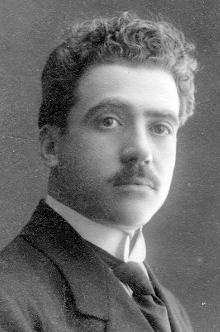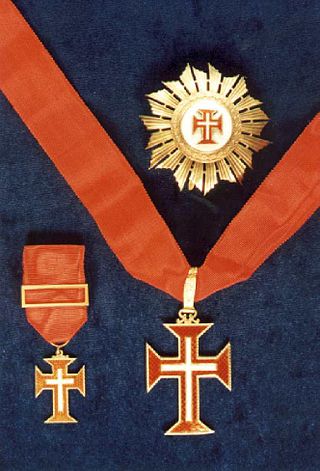
The Brazilian Academy of Sciences is the national academy of Brazil. It is headquartered in the city of Rio de Janeiro and was founded on May 3, 1916.

Duarte Pacheco Pereira, called the Portuguese Achilles by the poet Camões, was a Portuguese sea captain, soldier, explorer and cartographer. He travelled particularly in the central Atlantic Ocean west of the Cape Verde islands, along the coast of West Africa and to India. His accomplishments in strategic warfare, exploration, mathematics and astronomy were of an exceptional level.

Portugal competed at the 1960 Summer Olympics in Rome, Italy. A delegation of sixty five competitors participated in a record number of eleven sports, with the Star sailing team winning an Olympic silver medal, the second in Portugal's history.

Portugal competed at the 1952 Summer Olympics in Helsinki, Finland.

Domingos Leite Pereira was a Portuguese politician of the Portuguese First Republic. He had degrees in theology and literature of the University of Coimbra. He helped to improve the relationships between the republic and the Catholic Church during his government.

The Archdiocese of São Salvador da Bahia is part of the Roman Catholic Church in Brazil. The Archbishop of São Salvador da Bahia also carries the title Primate of Brazil. The archdiocese is located in the city of Salvador, Bahia.

Baltazar Leite Rebelo de Sousa, GCIH was a Portuguese politician and a former minister and member of parliament and medicine professor.

Estádio da Tapadinha is a football stadium located in Lisbon, Portugal. With a seating capacity up to 4,000 people, it is the home ground of both Atlético Clube de Portugal and Benfica women's football team.

Events in the year 1906 in Brazil.

Events in the year 1907 in Brazil.

Events in the year 1918 in Brazil.

Events in the year 1890 in Brazil.

Events in the year 1930 in Brazil.

Events in the year 1937 in Brazil.

The Ordem Militar de Cristo, the full name of which is the Military Order of Our Knights of Lord Jesus Christ, is a Portuguese honorific Order which takes its name from the extinct Order of Christ (1834), which is given for distinguished service in the performance of functions in sovereign positions or public administration, and for the judiciary and diplomacy, which is seen as being particularly distinguished.

Eufrásia Teixeira Leite was a Brazilian heiress, financial investor and philanthropist. She left in testament a fortune that could buy 1,850 kg of gold, at the prices of the time, having been one of the richest people in the world that time, and whose greater part was bequeathed to assisting educational institutions of the city of Vassouras. Alone, Eufrásia multiplied the family fortune several times and would be a billionaire by today's standards.

João Alfredo Correa de Oliveira was a Brazilian politician, abolitionist and monarchist.

The Constituent Cortes of 1820, formal title The General and Extraordinary Cortes of the Portuguese Nation, also frequently known as the Sovereign Congress or the Cortes Constituintes Vintistas, was the first modern Portuguese parliament. Created after the Liberal Revolution of 1820 to prepare a constitution for Portugal and its overseas territories, it used a different system from the traditional General Cortes for choosing representatives, and the three traditional feudal estates no longer sat separately. The Cortes sat between January 24, 1821 and November 4, 1822 at the Necessidades Palace in Lisbon. The work of the Constitutional Cortes culminated in the approval of the Portuguese Constitution of 1822.












